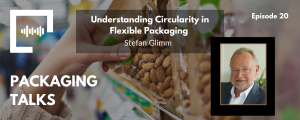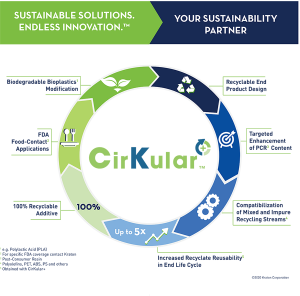
Ep 20 – Understanding Circularity in Flexible Packaging with Stefan Glimm
In this episode of Packaging Talks, it is our pleasure to host a global expert in flexible packaging with over three decades of experience –

In this episode of Packaging Talks, it is our pleasure to host a global expert in flexible packaging with over three decades of experience –

HOUSTON, July 6, 2021 /PRNewswire/ — Kraton Corporation (NYSE: KRA), a leading global sustainable producer of specialty polymers and high-value biobased products derived from pine wood pulping co-products, is pleased to receive Critical Guidance Recognition from the Association of Plastic Recyclers (APR) for its CirKular+ Performance Enhancement Series C2000 and C3000 for high-density polyethylene (HDPE) bottles.

France has confirmed that a new law has been introduced that will see minimum recycled content for plastic bottles.

New Delhi, India (07 July 2021):Tetra Pak has today been recognised as one of the world’s 50 Sustainability and Climate Leaders. The leading food processing and packaging solutions company has been acknowledged for its commitment to pioneer a sustainable future, with a documentary showcasing its fascinating journey.

In the last couple of decades consumerism has increased at an alarming pace and so has the quantum of waste; which has led to serious waste management issues. Reuse of materials and waste utilization is not widely prevalent in the production-consumption cycle.

EcoBlue had committed to set up a world-class 2nd recycling facility for PET, HDPE & PP in Thailand, which will be completed later this year.

Sustainable approaches to living in a modern society that reduce the rate of consumption of resources and the consequential impact on the planet are the

Ball corporation announces new sustainability goals, shares vision to achieve a circular economy for aluminum beverage packaging

Huhtamaki Global Tube Laminates is aware of the great responsibility for the environment and is already today presenting the solution for tomorrow.

Clermont-Ferrand, France, June 24, 2021 (07:01 AM CEST): The promise of endlessly recycled PET plastic is one step closer today, as the Consortium – Carbios, L’Oréal, Nestlé Waters, PepsiCo and Suntory Beverage & Food Europe – announces the successful production of the world’s first food-grade PET plastic bottles produced entirely from enzymatically recycled plastic.

Inside landfills, researchers have found rare but naturally occurring enzymes that break down plastic. By tweaking one of these enzymes, scientists at Carbios, a France-based startup, have figured out how to make the process happen faster—and now they’ve made the first prototypes of food-grade, enzymatically recycled bottles out of the material.

Scientists in the UK have genetically engineered Escherichia coli to transform plastic waste into vanillin. ‘Instead of simply recycling plastic waste into more plastic, what our system demonstrates for the first time is that you can use plastic as a feedstock for microbial cells and transform it into something with higher value and more industrial utility,’ says Stephen Wallace from the University of Edinburgh.